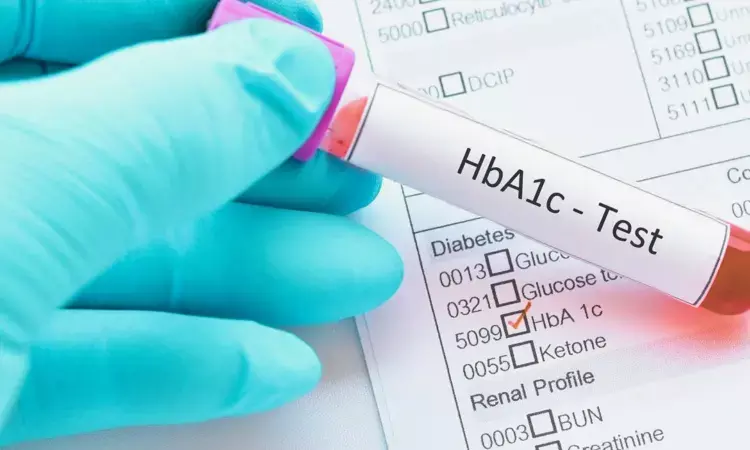- Home
- Medical news & Guidelines
- Anesthesiology
- Cardiology and CTVS
- Critical Care
- Dentistry
- Dermatology
- Diabetes and Endocrinology
- ENT
- Gastroenterology
- Medicine
- Nephrology
- Neurology
- Obstretics-Gynaecology
- Oncology
- Ophthalmology
- Orthopaedics
- Pediatrics-Neonatology
- Psychiatry
- Pulmonology
- Radiology
- Surgery
- Urology
- Laboratory Medicine
- Diet
- Nursing
- Paramedical
- Physiotherapy
- Health news
- Fact Check
- Bone Health Fact Check
- Brain Health Fact Check
- Cancer Related Fact Check
- Child Care Fact Check
- Dental and oral health fact check
- Diabetes and metabolic health fact check
- Diet and Nutrition Fact Check
- Eye and ENT Care Fact Check
- Fitness fact check
- Gut health fact check
- Heart health fact check
- Kidney health fact check
- Medical education fact check
- Men's health fact check
- Respiratory fact check
- Skin and hair care fact check
- Vaccine and Immunization fact check
- Women's health fact check
- AYUSH
- State News
- Andaman and Nicobar Islands
- Andhra Pradesh
- Arunachal Pradesh
- Assam
- Bihar
- Chandigarh
- Chattisgarh
- Dadra and Nagar Haveli
- Daman and Diu
- Delhi
- Goa
- Gujarat
- Haryana
- Himachal Pradesh
- Jammu & Kashmir
- Jharkhand
- Karnataka
- Kerala
- Ladakh
- Lakshadweep
- Madhya Pradesh
- Maharashtra
- Manipur
- Meghalaya
- Mizoram
- Nagaland
- Odisha
- Puducherry
- Punjab
- Rajasthan
- Sikkim
- Tamil Nadu
- Telangana
- Tripura
- Uttar Pradesh
- Uttrakhand
- West Bengal
- Medical Education
- Industry
HbA1c Levels Between 6.7-7.1 Percent May Lower Risks in Severe CKD Patients with Diabetes: Study Shows

Denmark: A new large-scale Danish study has highlighted the importance of precise blood sugar control in individuals with diabetes and advanced chronic kidney disease (CKD). The findings, published in Diabetes Care by Dr. Dea H. Kofod and colleagues from Copenhagen University Hospital – Rigshospitalet, suggest that maintaining hemoglobin A1c (HbA1c) within a narrow range of 6.7–7.1% may significantly reduce the risk of complications in this vulnerable patient population.
"In patients with diabetes and severe CKD, an HbA1c range of 6.7–7.1% was linked to the lowest risk of complications. Risks of cardiovascular events rose at HbA1c ≥7.2% and <5.8%, while hypoglycemia-related hospitalizations increased at ≥6.7%, highlighting 6.7–7.1% as the optimal target range," the researchers reported.
The study explored the association between HbA1c levels and diabetes-related complications in adults with severe CKD, defined as having an estimated glomerular filtration rate (eGFR) below 30 mL/min/1.73 m². The research team analyzed data from 27,113 patients with diabetes and severe CKD, using data collected between 2010 and 2022 through Danish national health registries. For comparison, two control groups were included—over 80,000 patients each with diabetes and either mild-to-moderate CKD or no-to-mild CKD.
Using multiple Cox regression models, the researchers assessed the risk of major adverse cardiovascular events (MACE), microvascular complications, and hospital admissions due to hypoglycemia across different HbA1c levels.
The following were the key findings of the study:
- There was a U-shaped risk pattern for major adverse cardiovascular events (MACE) in patients with severe CKD.
- MACE risk increased at HbA1c levels below 5.8% (40 mmol/mol) and above 7.2% (55 mmol/mol), compared to those with HbA1c between 6.3–6.6% (45–49 mmol/mol).
- The risk of microvascular complications rose significantly when HbA1c exceeded 7.2%.
- Hospitalization due to hypoglycemia became notably more frequent at HbA1c levels of 6.7% or higher.
- These risk patterns remained consistent when compared with cohorts having mild-to-moderate or no-to-mild CKD.
- The findings highlight that both overly strict and poorly controlled glycemic levels are associated with increased complications.
- Excessively low HbA1c levels may contribute to adverse cardiovascular outcomes, likely due to a higher risk of hypoglycemia.
Based on the study’s findings, maintaining HbA1c between 6.7% and 7.1% (50–54 mmol/mol) may offer the best balance in reducing the risk of both microvascular and macrovascular complications, as well as minimizing hypoglycemia-related hospitalizations.
Given the growing number of patients living with both diabetes and CKD, this research provides timely insights into optimal glycemic targets for long-term safety and improved outcomes.
The authors recommend that treatment goals for patients with severe CKD should consider individual risk profiles and avoid overly aggressive glycemic targets. Further research could help refine personalized treatment strategies and support evidence-based updates to clinical guidelines.
Reference:
Dea H. Kofod, Nicholas Carlson, Thomas P. Almdal, Tobias Bomholt, Christian Torp-Pedersen, Kirsten Nørgaard, Jesper H. Svendsen, Bo Feldt-Rasmussen, Mads Hornum; The Association Between Hemoglobin A1c and Complications Among Individuals With Diabetes and Severe Chronic Kidney Disease. Diabetes Care 2025; dc250339. https://doi.org/10.2337/dc25-0339
Dr Kamal Kant Kohli-MBBS, DTCD- a chest specialist with more than 30 years of practice and a flair for writing clinical articles, Dr Kamal Kant Kohli joined Medical Dialogues as a Chief Editor of Medical News. Besides writing articles, as an editor, he proofreads and verifies all the medical content published on Medical Dialogues including those coming from journals, studies,medical conferences,guidelines etc. Email: drkohli@medicaldialogues.in. Contact no. 011-43720751


